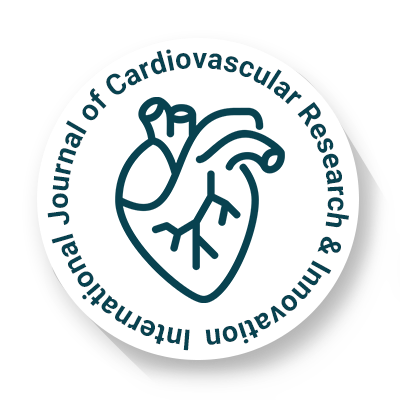
International Journal of Cardiovascular Research & Innovation
OPEN ACCESS

OPEN ACCESS

1Department of Periodontics, Yenapoya Dental College and Hospital, Yenapoya University, Mangalore, Karnataka, India
2Department of Physiotherapy, Ambujakshi Dental & Physiotherapy centre, Davanagere, Karnataka, India
3Department of Periodontics, Harsha Dental Care, Chitradurga, Karnataka, India
4Department of Endodontics, JSS Dental College and Hospital, Mysore, Karnataka, India
Periodontitis is a chronic inflammatory disease characterized by the destruction of periodontal tissues, primarily caused by pathogenic bacteria and a dysregulated immune response. Recent research has established a significant link between periodontitis and cardiovascular disease (CVD), highlighting the systemic implications of oral health. This systematic review critically evaluates existing literature on the association between periodontitis and cardiovascular health, focusing on underlying mechanisms, epidemiological evidence, and clinical implications. A comprehensive search was conducted using databases such as PubMed, Scopus, and Web of Science, following PRISMA guidelines, resulting in the inclusion of 25 studies published until October 2024. The findings reveal that systemic inflammation, driven by periodontal disease, contributes to endothelial dysfunction and atherosclerosis, increasing cardiovascular risk. Longitudinal and cross-sectional studies demonstrate a clear association between severe periodontitis and elevated risks of coronary heart disease, ischemic stroke, and cardiovascular mortality. Additionally, randomized controlled trials (RCTs) indicate that periodontal therapy can significantly improve systemic inflammatory markers and endothelial function, suggesting potential preventive strategies against CVD. Despite these insights, further research is necessary to elucidate the molecular mechanisms involved and to assess the long-term benefits of periodontal interventions on cardiovascular outcomes. Collaborative care models between dental and medical professionals are recommended to optimize patient management, ultimately improving both oral and cardiovascular health.
Received 31 October 2024; Revised 26 November 2024; Accepted 03 December 2024
1Department of Periodontics, Yenapoya Dental College and Hospital, Yenapoya University, Mangalore, Karnataka, India
2Department of Physiotherapy, Ambujakshi Dental & Physiotherapy centre, Davanagere, Karnataka, India
3Department of Periodontics, Harsha Dental Care, Chitradurga, Karnataka, India
4Department of Endodontics, JSS Dental College and Hospital, Mysore, Karnataka, India